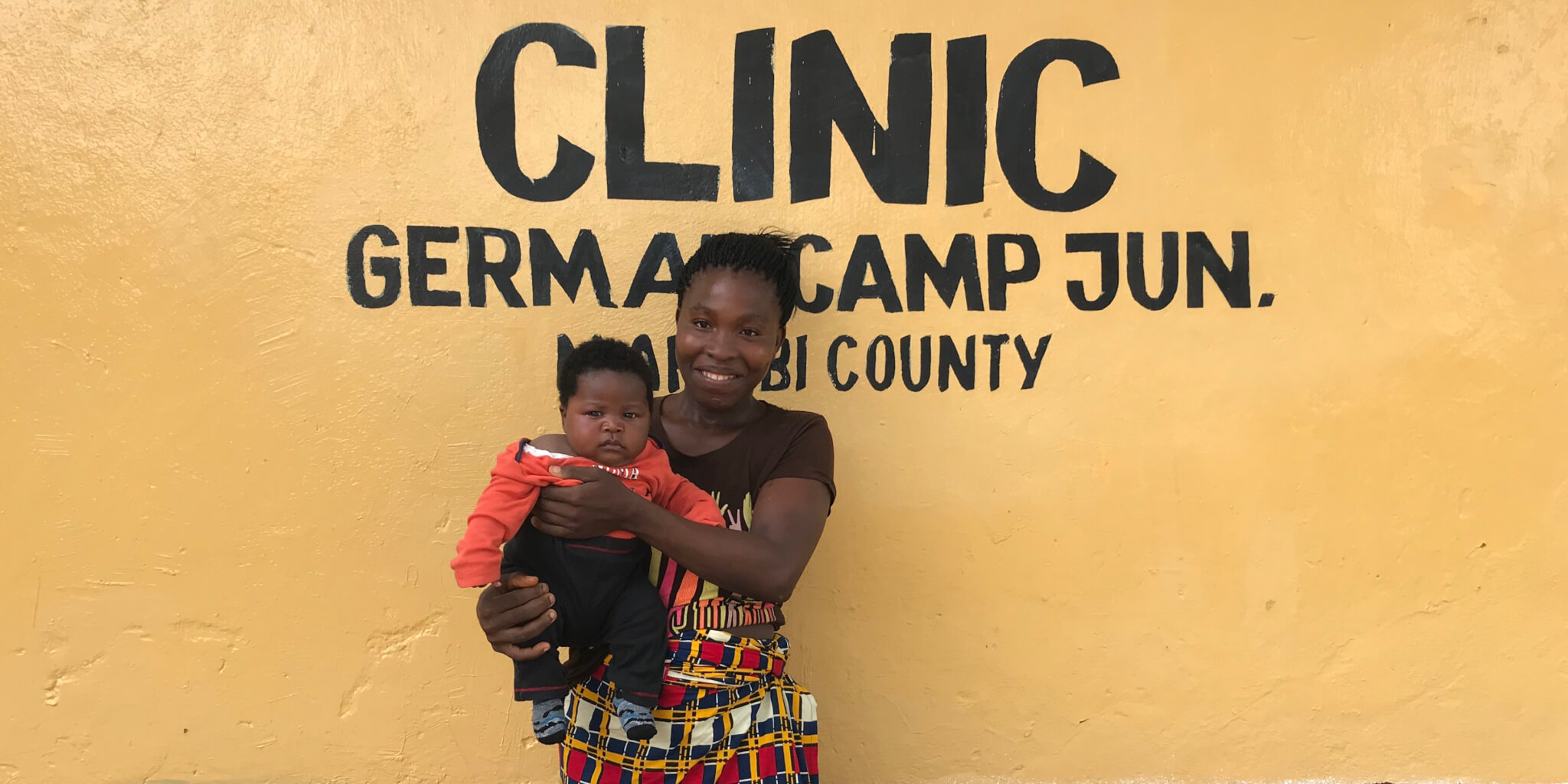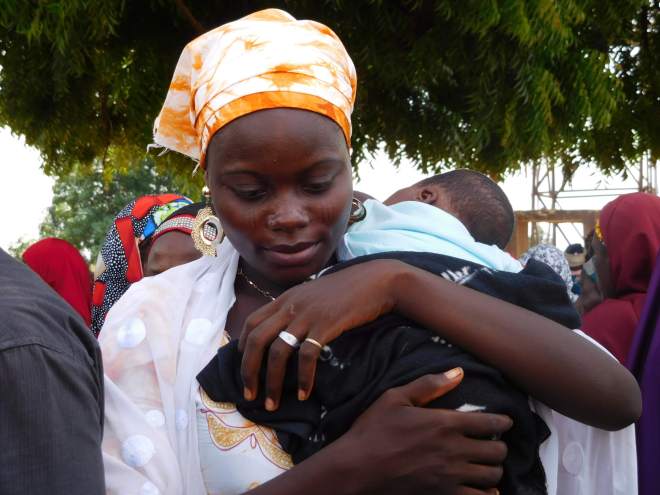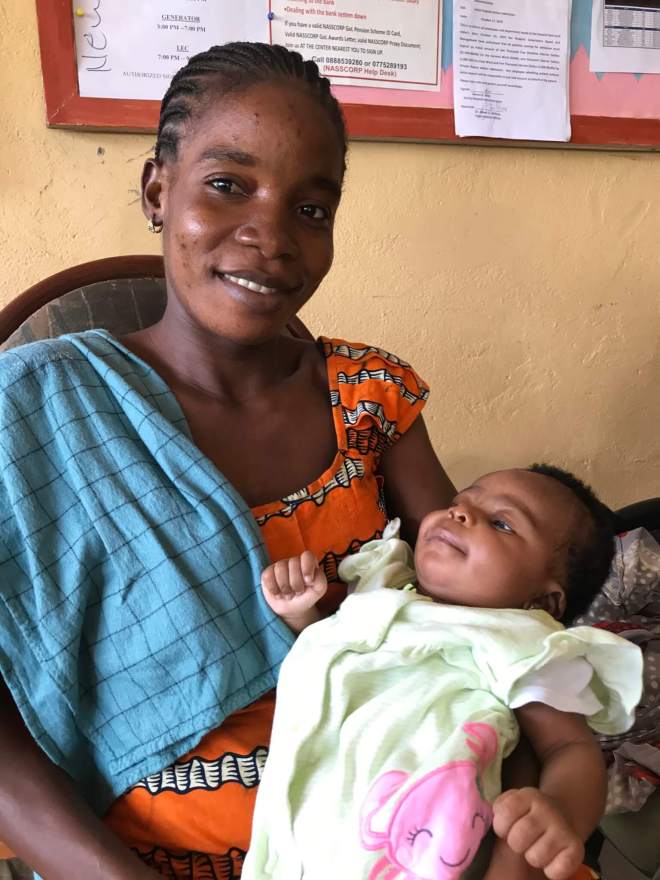
A mother and baby outside a UMC health facility in Liberia. PHOTO: COURTESY KATHY GRIFFITH
World Breastfeeding Week, August 1-7
August 2, 2021 | ATLANTA
The United Methodist Church’s Abundant Health Initiative promotes physical, emotional and spiritual well-being for all. In sub-Saharan Africa, Global Ministries’ Global Health unit focuses particularly on abundant health for pregnant women, mothers and young children in economically vulnerable communities. This World Breastfeeding Week let’s remember that breastfeeding is an invaluable part of health for both mother and child.
- Mothers breastfeed their newborns within an hour of their delivery.
All mothers giving birth at Abundant Health facilities are taught best care for their newborns, including breastfeeding. In Nigeria, staff and community health workers at Gwandum, Worom, Bambuka and Nahuta health centers help mothers to breastfeed with an hour of giving birth. This not only provides perfect nutrition and protection for each newborn, but essential warmth and emotional bonding. It is special work because there are some communities with strong traditional values and customs that don’t naturally support this practice.

- For best health and growth, infants are exclusively breastfed for their first six months.
Exclusive breastfeeding is hard work, especially for mothers who farm their land, manage a small business, work for others or are living in insecure parts of a country. It’s serious work for women in Sierra Leone, where malnutrition is increasingly common, even in very young children.
- Breastfeeding protects infants from childhood diseases.
In the Democratic Republic of Congo, pregnant women and new mothers are taught at UMC health centers and in the community that their breast milk contains everything needed for their children’s healthy growth and development. This includes protection from common, life-threatening infections, like pneumonia and diarrhea.
- Breast milk is available, safe and affordable.
In Liberia, where the Abundant Health facilities, markets and surrounding villages are not connected by good roads or markets, mothers know that their breast milk is prepared and safe. However, it also means that mothers need to be well nourished for their own good health.

- Breastfeeding also benefits mothers.
In all Abundant Health projects, women are encouraged to breastfeed for their own well-being. Breastfeeding supports bonding with their children, helps the family economy as formula milk is expensive and often not easy to prepare correctly, acts as a contraceptive under specific conditions, and reduces the risk of postpartum hemorrhage and depression, type II diabetes, and breast and ovarian cancer.

